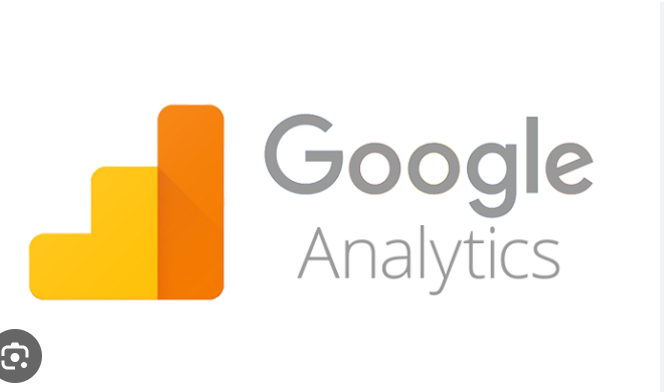In today’s digital age, data collection is crucial for businesses to understand their customers, track their performance, and make informed decisions. One of the most popular tools for data collection is Google Analytics. In this article, we will explore why Google Analytics is used to collect data, and how it can benefit businesses in understanding their company-specific data member status.
Understanding Company-Specific Data
Every business has its own unique set of data that is specific to their operations, customers, and performance. This company-specific data is crucial for businesses to analyze and understand in order to make informed decisions. Whether it’s tracking website traffic, monitoring sales performance, or understanding customer behavior, having access to company-specific data is essential for business success.
Member Status and Data Collection
One important aspect of company-specific data is the member status of customers or users. Understanding who your members are, their behavior, and their interactions with your business is vital for making strategic decisions. Google Analytics allows businesses to track and analyze member status data, providing valuable insights into customer behavior, retention rates, and engagement levels.
Why Google Analytics?
Google Analytics is a powerful tool that allows businesses to collect, analyze, and interpret data from various sources such as websites, mobile apps, and other digital platforms. There are several reasons why Google Analytics is widely used for data collection:
1. Comprehensive Data Tracking: Google Analytics provides businesses with a comprehensive set of tools to track and analyze various types of data, including website traffic, user behavior, conversion rates, and more. This allows businesses to gain a deeper understanding of their company-specific data member status.
2. Customizable Reporting: Google Analytics offers customizable reporting features that allow businesses to create tailored reports based on their specific data needs. Whether it’s tracking member status data or analyzing customer demographics, businesses can create reports that provide valuable insights into their data.
3. Integration with Other Tools: Google Analytics seamlessly integrates with other Google tools such as Google Ads, Google Search Console, and Google Tag Manager, allowing businesses to combine data from different sources for a more comprehensive analysis.
4. Real-Time Data Collection: Google Analytics provides real-time data collection and reporting, allowing businesses to monitor and track their company-specific data member status as it happens. This real-time insight can be invaluable for making timely decisions and adjustments.
5. Data Security and Privacy: Google Analytics prioritizes data security and privacy, ensuring that businesses can collect and analyze data in a safe and compliant manner.
Utilizing Google Analytics for Company-Specific Data Member Status
For businesses looking to understand their company-specific data member status, Google Analytics offers a range of features and tools to collect, analyze, and interpret data. By leveraging the power of Google Analytics, businesses can gain valuable insights into their member status data, track customer behavior, and make informed decisions to drive business growth.
In conclusion, Google Analytics is a powerful tool for businesses to collect and analyze company-specific data, including member status. By utilizing Google Analytics, businesses can gain valuable insights into customer behavior, retention rates, and engagement levels, allowing them to make informed decisions and drive business success. Whether it’s tracking website traffic, monitoring sales performance, or understanding customer behavior, Google Analytics is an essential tool for data collection and analysis.
FAQs about Google Analytics for Data Collection:
1. What is Google Analytics?
Google Analytics is a web analytics service offered by Google that enables website and app owners to track and analyze their user traffic, engagement, and behavior. It provides valuable insights into how users interact with a website or application.
2. How does Google Analytics collect data?
Google Analytics collects data through a tracking code embedded in web pages or apps. This code records various interactions of users, such as page views, clicks, session duration, and more, which are then processed into reports for analysis.
3. What types of data can be tracked using Google Analytics?
Google Analytics can track diverse data types, including website traffic (number of visitors, page views), user demographics (age, gender, location), user behavior (pages visited, time spent), referral sources (where visitors come from), and conversions (goals achieved on a website).
4. Is Google Analytics suitable for all business sizes?
Yes, Google Analytics is a versatile tool suitable for businesses of all sizes. Its features can be adapted to the specific needs and scale of operations, from small websites to large enterprise-level applications.
5. How does Google Analytics benefit businesses?
Google Analytics empowers businesses by providing actionable insights derived from data analysis. These insights help in understanding user behavior, optimizing marketing strategies, enhancing user experience, improving conversion rates, and making data-driven decisions for business growth.
6. Can Google Analytics track mobile app data?
Yes, Google Analytics offers mobile app tracking capabilities. It can track user interactions within mobile applications, providing insights into app usage, user engagement, and performance metrics specific to mobile devices.
7. Is Google Analytics free to use?
Yes, Google Analytics offers a free version with robust features suitable for most businesses. There’s also a premium version, Google Analytics 360, which provides additional functionalities for larger enterprises.
8. How secure is the data collected by Google Analytics?
Google Analytics ensures data security and privacy by anonymizing IP addresses, providing options for user data retention settings, offering data encryption, and complying with various privacy regulations like GDPR (General Data Protection Regulation).
9. Can Google Analytics integrate with other tools?
Yes, Google Analytics seamlessly integrates with various Google and third-party tools like Google Ads, Google Search Console, CRM systems, email marketing platforms, and more. This integration allows for a more comprehensive analysis by combining data from multiple sources.
10. What support resources are available for using Google Analytics?
Google provides comprehensive online resources, including tutorials, documentation, community forums, and certified partners, offering assistance and guidance for utilizing Google Analytics effectively.

